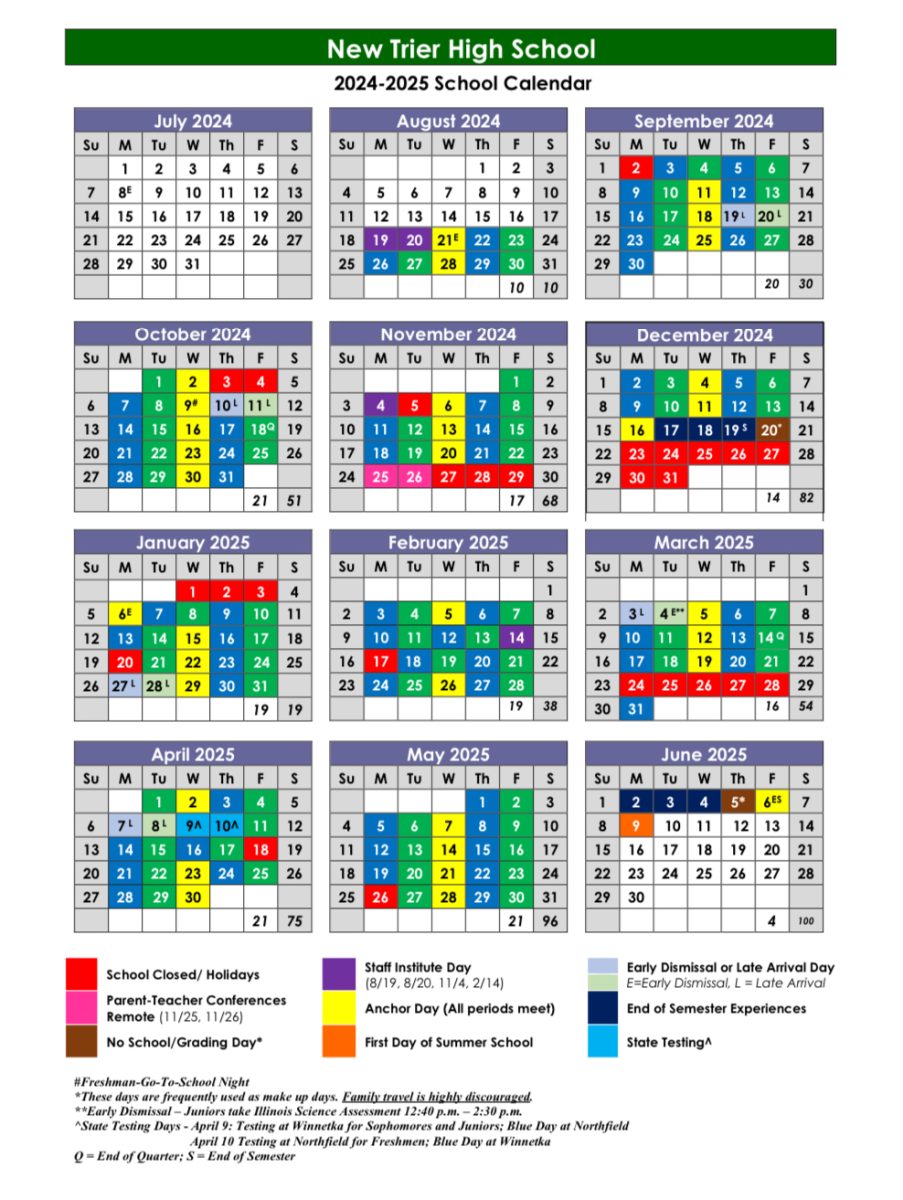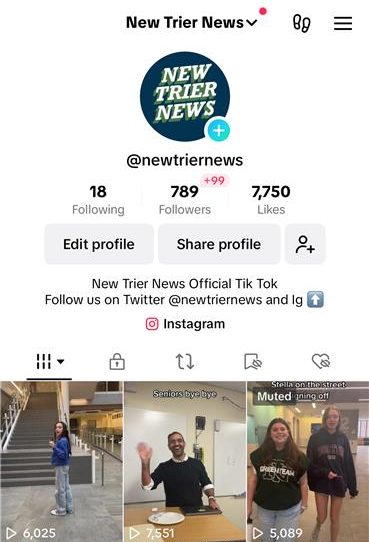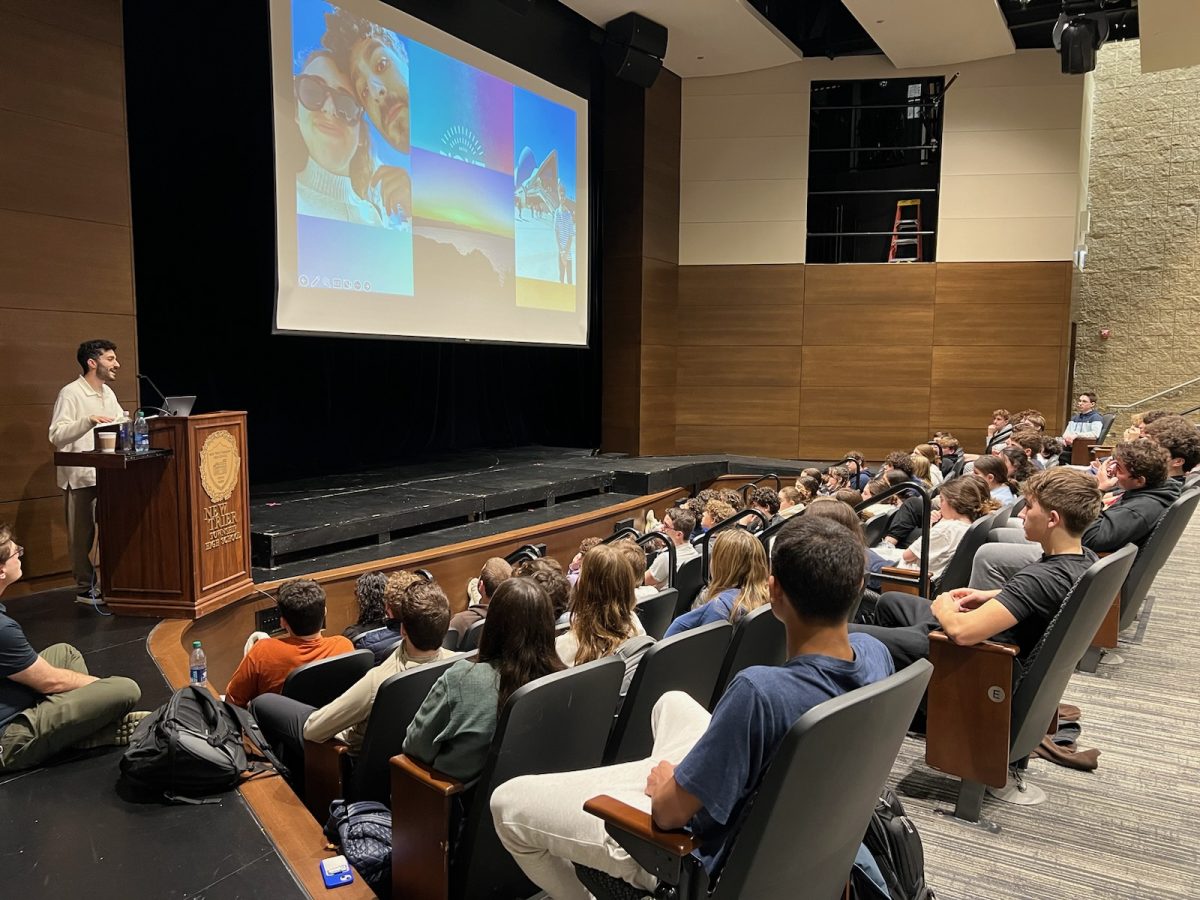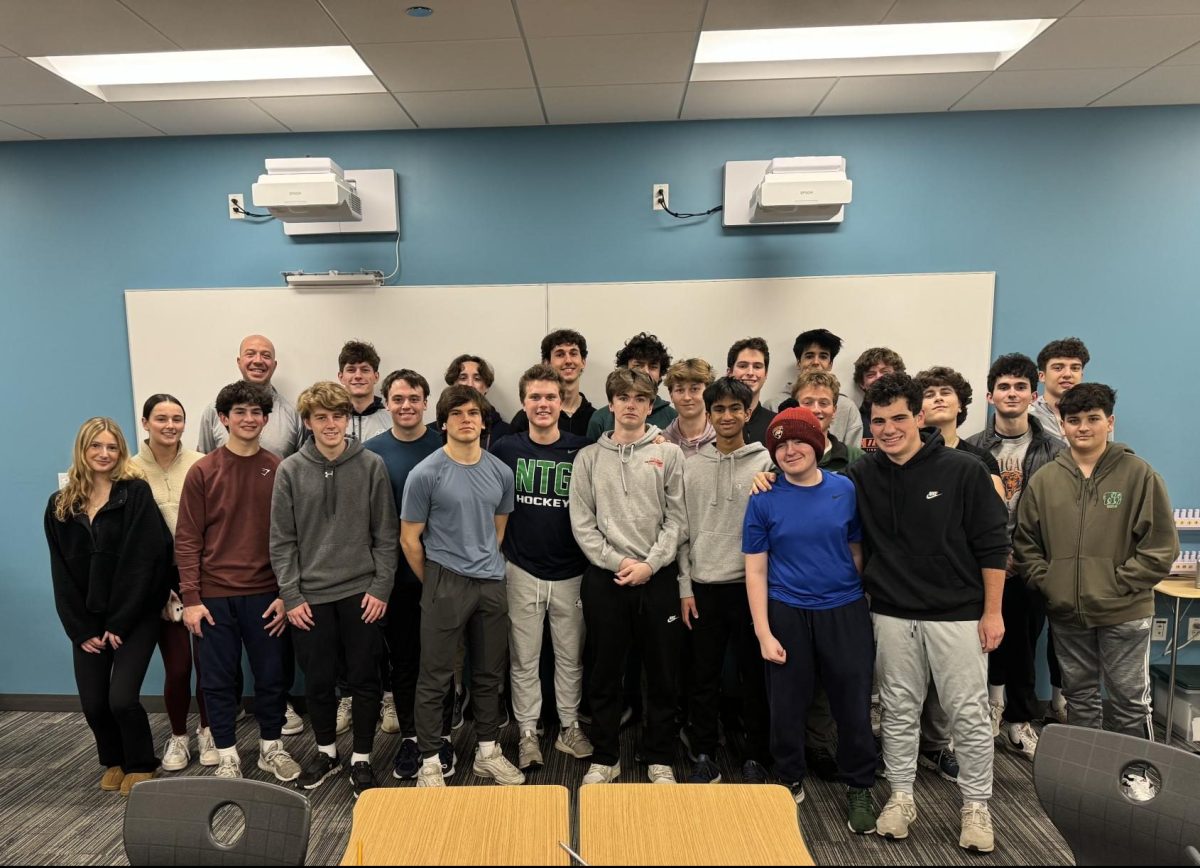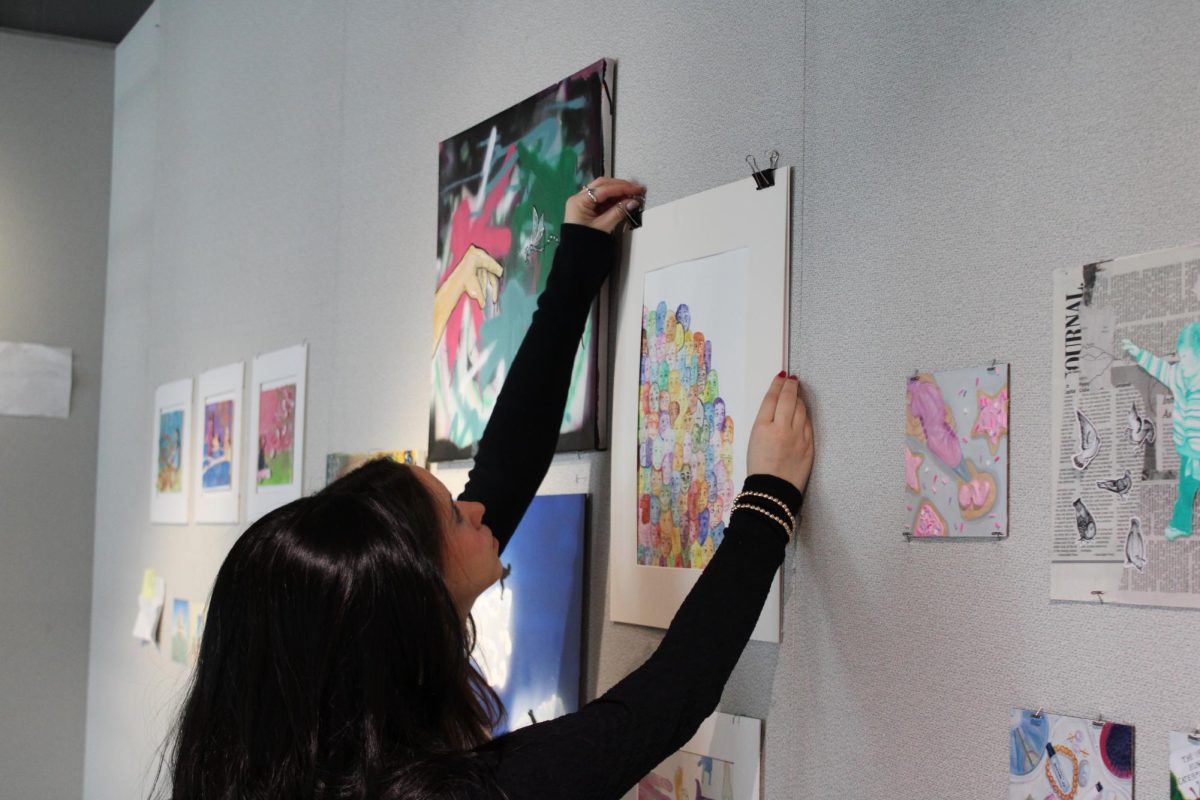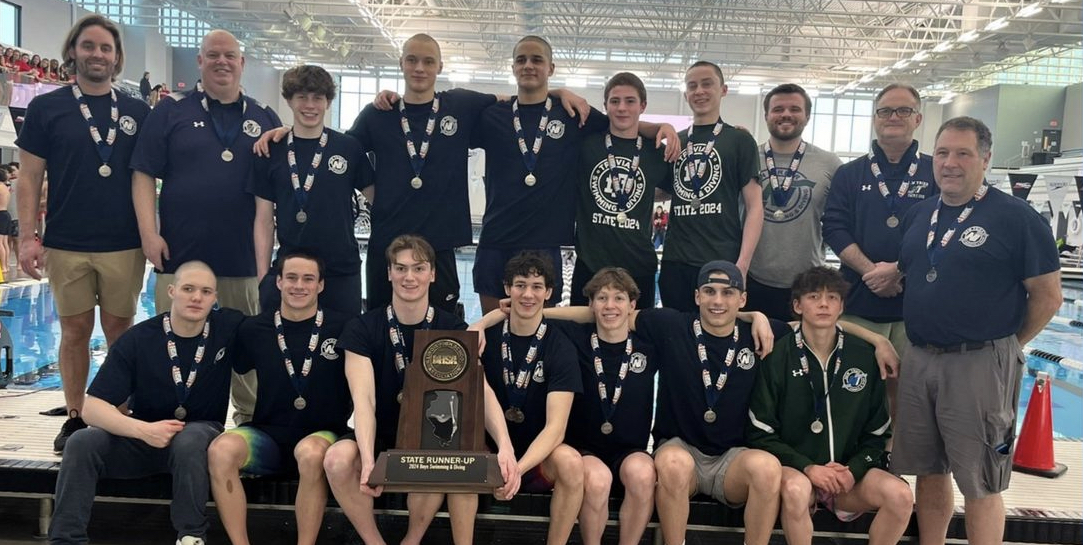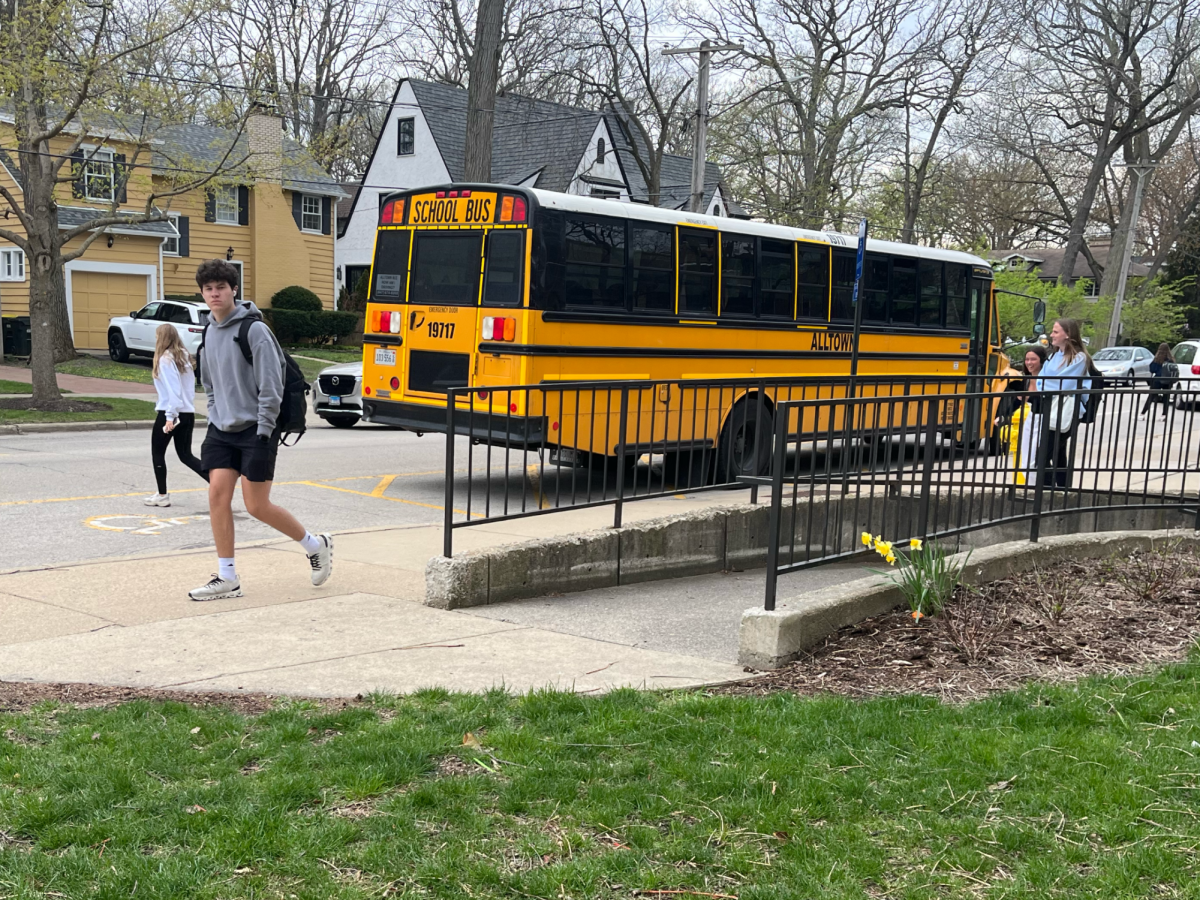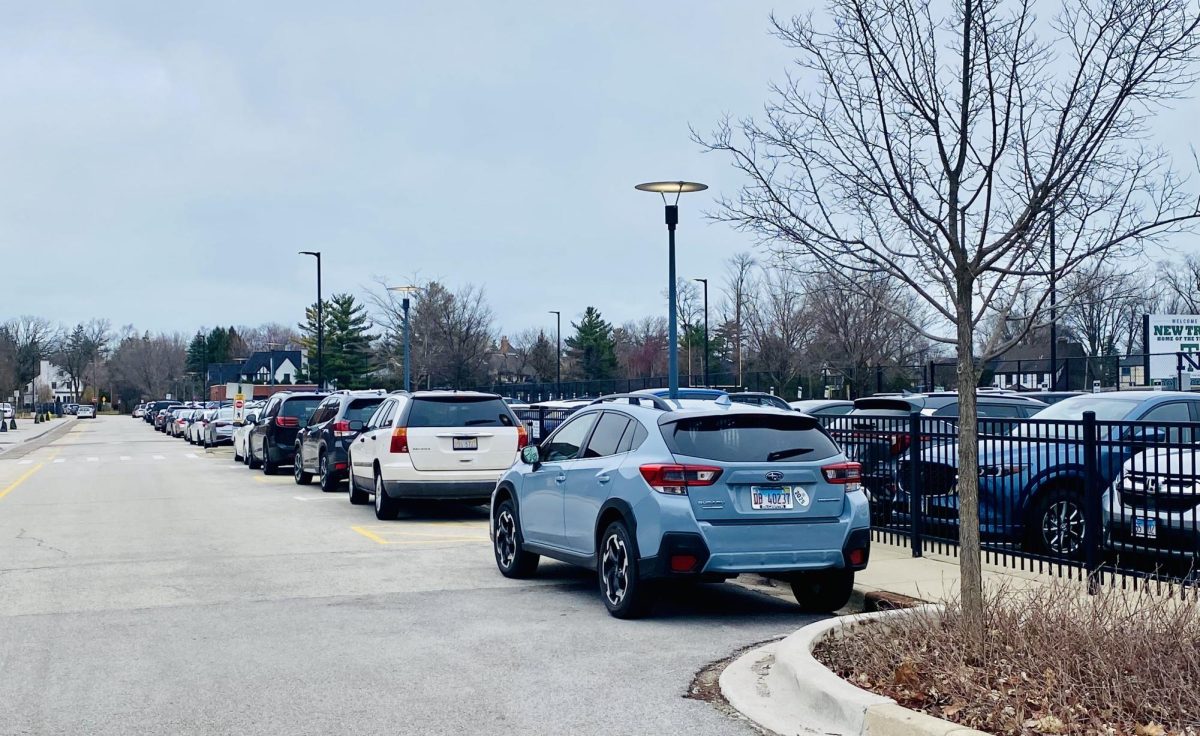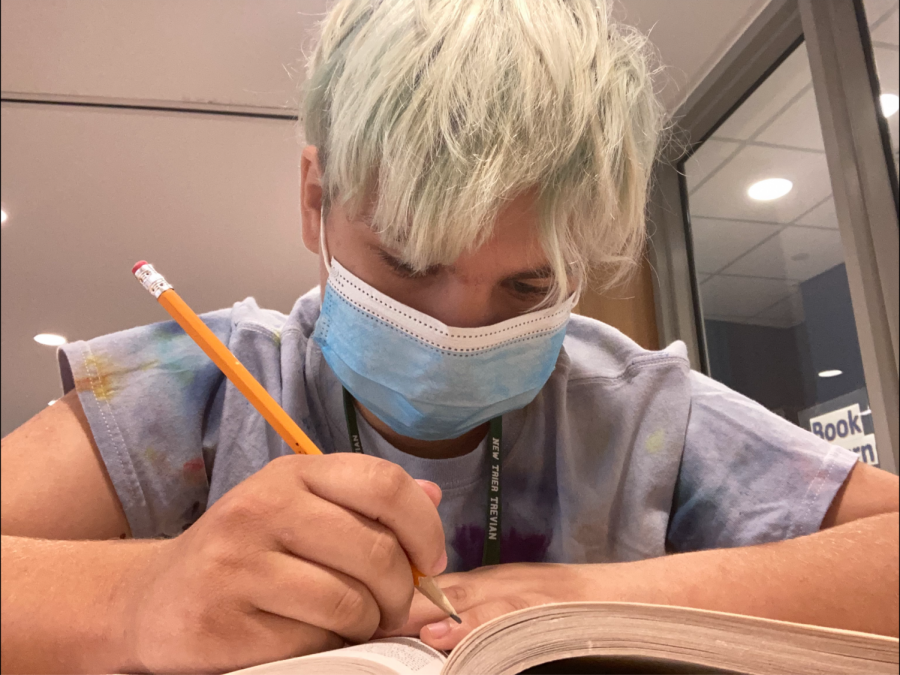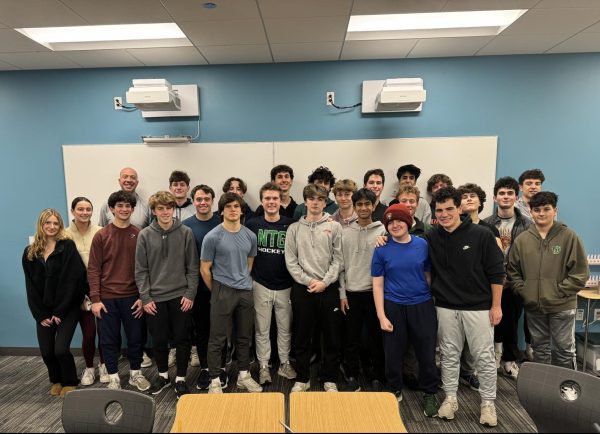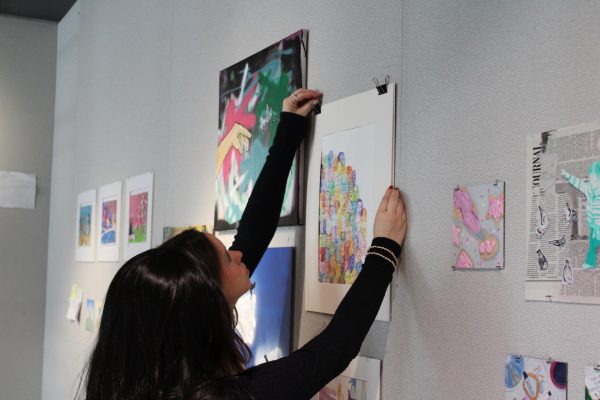Adapting to the new age: staff and faculty to learn about gender binaries
gender-nonconforming students speak out about their experiences at New Trier
Atlas Hollander, spending their free period working at the library, is among several non binary students who are interested in seeing continued change in New Trier
Every student has had the experience of feeling stressed on the first days of school, but those feelings increase tenfold for trans and nonbinary students. That’s no different at New Trier.
Even with the installation of gender neutral bathrooms and adding more inclusive vocabulary in the classroom, New Trier still faces issues, students say.
In interviews with seven teens who identify under the trans or nonbinary umbrella, many shared perspectives emerged. Almost every student interviewed agreed that the current roll call on the first day of school is a stress inducer.
“Calling out names on the first day when I don’t have my preferred name on the roster is incredibly stressful,” one interviewee says. “One teacher just let the students introduce themselves and say their names instead and that worked a lot better.”
“If teachers do want to do roll call, I like it when they do it by last name instead of first, it’s much less stressful and I don’t have to worry about the teacher calling out my deadname to the whole class,” they continued.
Other interviewees expressed similar ideas.
“I’d like to have kids go around and say their first and last name and their pronouns on the first day, so then the teachers and the students don’t use the incorrect name or pronouns, and people aren’t singled out for being trans,” says Junior Amelia Schotz.
Junior Cae Parkhill would also like to see some changes in the way the school hands out its schedule information.
“I know at the beginning of this year, my plan was to email teachers and explain that I’m trans — this is my name, my nickname, my pronouns, thanks — but then I didn’t have access to a list of my teachers or their emails so I couldn’t, and then it feels really awkward.”
The school does have the capability to do so, but there are some obstacles keeping the schedules from being released early.
“Is it possible for us to do? Absolutely. It’s something that we discussed a little bit, this year. However, there is that component of balancing and managing schedules, and moving students around in different ways. Teachers and schedules are being shifted until nearly the first day of school. That’s something that we have to consider,” says Scott Williams, the Assistant Principal of Student Services.
The main consensus among the students interviewed was that the school should give students the ability to say their names and pronouns without the fear and stress of being deadnamed in front of a class. It is also important to a lot of interviewees that every student say their pronouns to the class, not only to give everyone the opportunity to state their correct names, but also to normalize talking about pronouns in a casual setting.
In the first days of class, many teachers created surveys to get to know their students better, which included their ‘preferred’ names and pronouns. Teachers have been putting effort into maintaining a safe space in their classrooms, but there is room for improvement.
“I noticed that some surveys only had single choice answers for pronouns. All surveys should have multiple options for pronouns, and they should add a difference between pronouns used at home vs. school for kids who aren’t completely out yet,” said a student who asked to remain anonymous.
Many of the students interviewed, like junior Atlas Hollander, shared the experience of being deadnamed and misgendered at school, and at times, teachers were at fault.
“We need teachers to actively use the [right] pronouns because the majority of my classes will use the incorrect pronouns on me,” they said.
“Using someone’s correct pronouns should not be a whole affair, and we should normalize that. I have friends who have been misgendered and called slurs at school, and while I don’t know if teachers were around every time, they were at some points and did absolutely nothing and that’s both disappointing and infuriating to me,” said Schotz.
Some teachers make the effort of letting their students know they are welcome, but then do not implement any gender neutral replacements for easily changeable gendered terms or activities.
Everyone claims to support people regardless of their gender identity, yet revert back to gendered terms as opposed to referring to people as people — Amelia Schotz
“I’ve found a lot of teachers refer to the class as boys and girls or split them into sections as such, and that whole view is problematic to me because there are so many people who don’t fall into the binary, and it’s not even about whether or not it actively bothers them, it’s more about the fact that everyone claims to support people regardless of their gender identity, yet revert back to gendered terms as opposed to referring to people as people,” says Schotz.
Hollander had to go through the process of updating their ID to have their deadname removed and replaced with their presently used name.
“I thought it would be an easy fix,” says Hollander. “But when I got a new [ID] my deadname was still on there, while ‘Atlas’ is in parentheses. It’s not a nickname. It’s my name. New Trier needs to acknowledge that.”
Another issue for these students is that New Trier is one of the only North Shore schools that still has not implemented a co-ed advisery.
“All of the other high schools have woken up and chosen to allow for co-ed adviseries, while New Trier has stuck with their favorite excuse, tradition, and unnecessarily segregated adviseries,” says one interviewee.
The school has been considering changing to coed adviseries for some time.
“This past January, we as a school surveyed our junior and senior students about their advisery experiences, and specifically asking about some of the gender structures, and from there that’s helping inform some of our decision making,” says Williams.
“One reason against gendered adviseries is that they force trans students to go through administrative hoops in order to be in an advisery that matches their gender if they did not start in that one their freshman year. This makes transitioning a bigger deal than it should be,” says Schotz.
The aspect of gender is not the only issue that has come up with keeping traditional adviseries.
“Honestly even without gender involved, it just reinforces gender stereotypes and roles. I think people should be mixed in advisery in terms of gender/sex, because there’s really no point to separate people,” says Parkhill.
Most students see their classes as a safe space where they can be their authentic selves, and protecting that feeling should be a priority. However, New Trier has not always allowed for that.
“For everyone to be comfortable, we can’t continue to enforce the binary. It’s that simple,” says Schotz.

